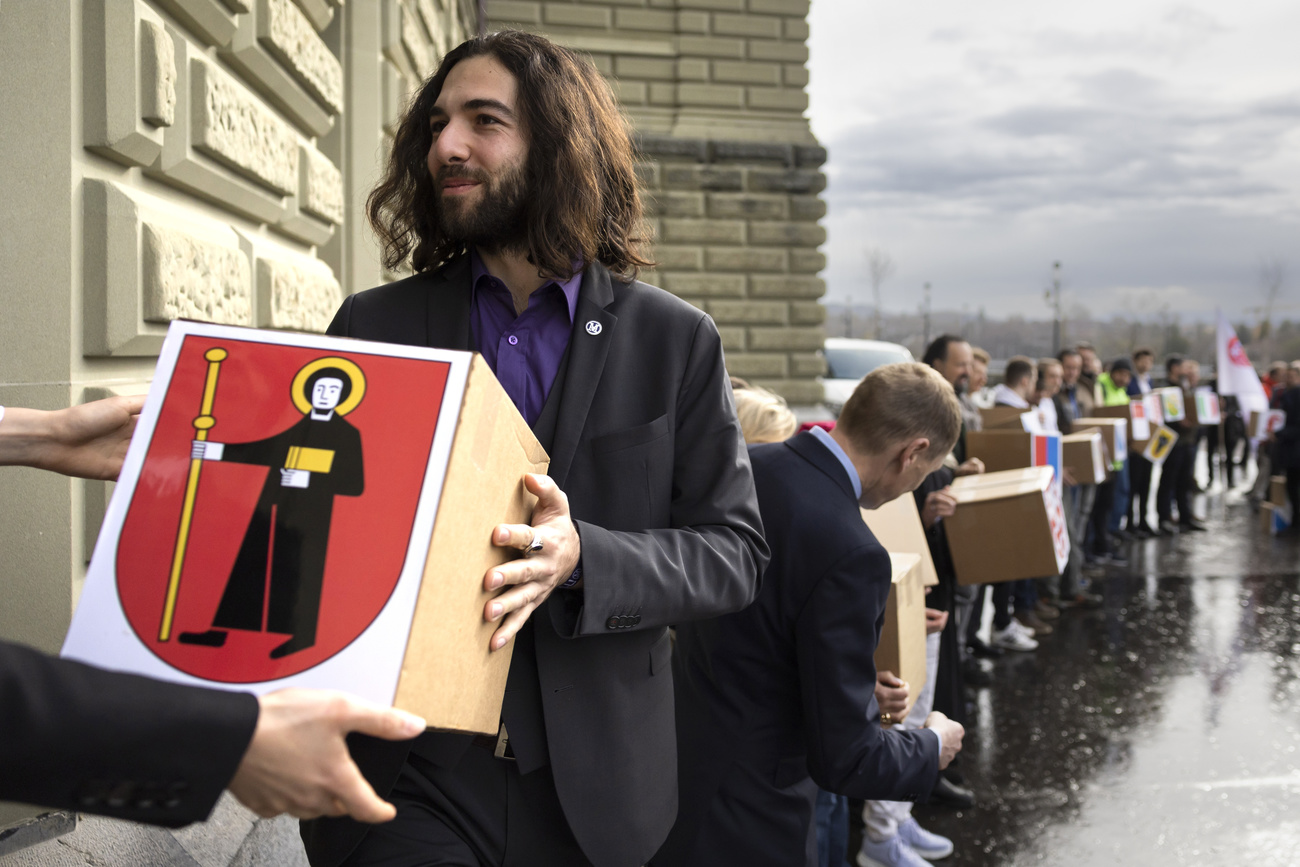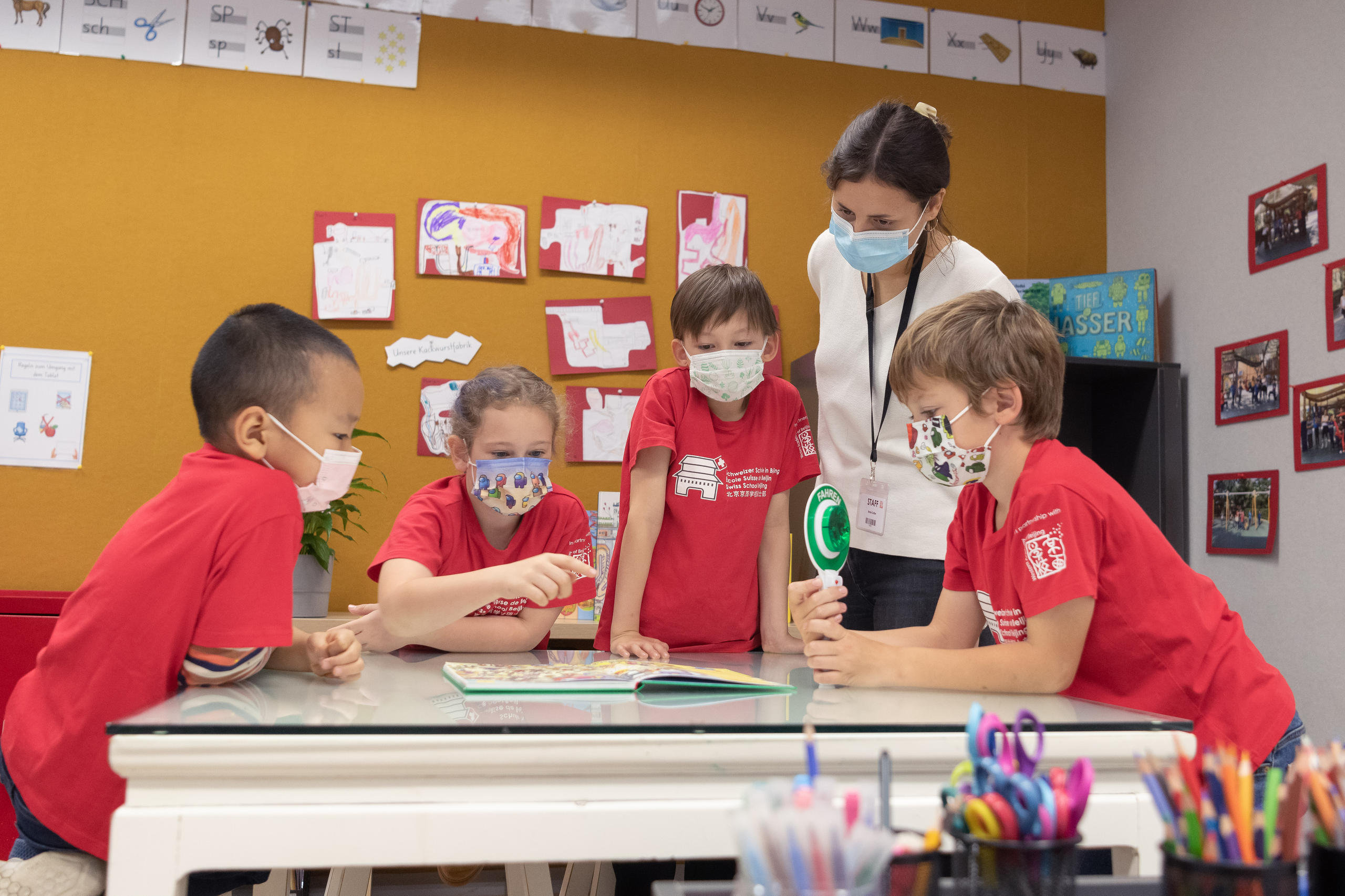Swiss vote explainer: another Covid-19 initiative?

The pandemic restrictions may have long been lifted, but some measures are still making waves politically. The Swiss electorate is once again called to the polls to vote on a bill that has a connection with Covid-19.
What is the initiative about?
The initiative demands that “interventions impacting physical or mental integrity” require the consent of the person involved. It states that every person should have the right to decide for themselves what “may be injected or inserted into their body”. Additionally, the initiative goes on to state that refusal of any measures should not be penalised and should not result in social or professional disadvantages.
The popular initiative with the official name ‘for freedom and physical integrity’ – commonly known as the ‘stop compulsory vaccination’ initiative – was launched during the pandemic and associated social restrictions. The text was submitted to federal authorities at the end of 2021. At the time, most of the Covid-19 protective measures had already expired. In February 2022, the government then cancelled almost all of the remaining measures.
Who is behind the initiative?
The Freedom Movement Switzerland submitted the initiative on December 16, 2021, with more than 125,000 valid signatures. Among the signatories were former parliamentarian from the right-wing Swiss People’s Party, Yvette Estermann, and cabaret artist Marco Rima.
According to the initiative, the Federal Constitution should be amended as followsExternal link:
Art. 10 para. 2bis
Interventions in the physical or mental integrity of a person require their consent. The person concerned may not be penalised or suffer social or professional disadvantages as a result of refusing consent.
Who is against it?
Both houses of parliament and their legal affairs committees rejected the initiative, with the only votes against and abstentions coming from the Swiss People’s Party. The Federal Council also rejected it and did not put forth a counter-proposal.
It took a relatively long time for a committee against the initiative to form, presumably because the initiative was considered to have little chance of success. Under the leadership of Beat Flach from the Liberal Green PartyExternal link, parliamentarians from the largest parties (except from the Swiss People’s Party) have now joined forces.
It is rather unusual for individuals to lead a vote campaign against people’s initiatives. Usually, parties and associations join forces to do this. As this is not the case this time, Flach took the first step, citing reasons of democratic policy: “If the Federal Council and parliament reject the initiative, this has to be represented in the vote campaign,” he said.
What does the Yes camp say?
“Denying individuals the right to control their own bodies is the greatest crime in modern human history since slavery,” says the president of the Freedom Movement Switzerland, Richard Koller, summarising the motivation behind the initiative.

According to newspaper reportsExternal link, he fears that “chips or digital codes” will also be inserted or injected under the skin in the future. Koller insinuates that individuals such as Bill Gates and organisations such as the World Health Organization (WHO) are the driving forces behind the initiative and that politicians are taking increasingly authoritarian action against the population.
What does the No camp say?
According to the Federal CouncilExternal link, the initiative goes far beyond the topic of vaccination. It would lead to legal uncertainty in various areas of society, for example in criminal prosecution or in child and adult protection. Additionally, the Federal Council states that currently no one is being vaccinated against their will.
In parliament, the initiative was described as “misguided”, as it was formulated too generally and raised false expectations. Calls from the Swiss People’s Party for a counter-proposal were rejected with the argument that it is not the position of parliament to correct badly-formed initiatives.
Edited by Balz Rigendinger/adapted from German by DeepL/amva

In compliance with the JTI standards
More: SWI swissinfo.ch certified by the Journalism Trust Initiative














You can find an overview of ongoing debates with our journalists here . Please join us!
If you want to start a conversation about a topic raised in this article or want to report factual errors, email us at english@swissinfo.ch.